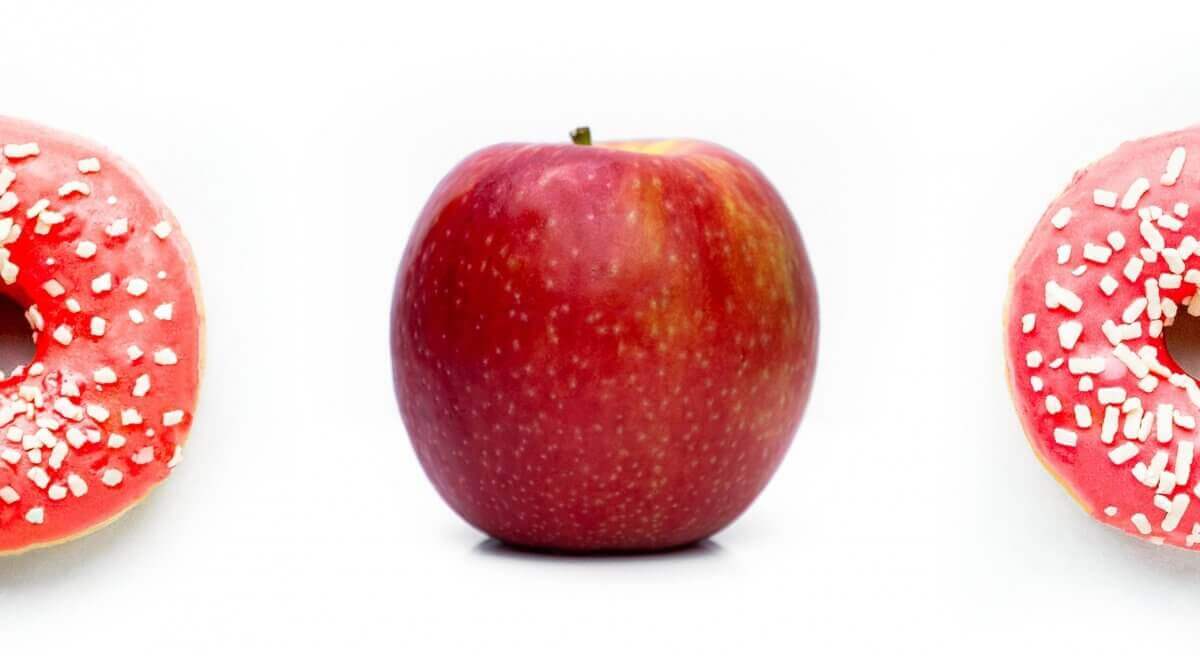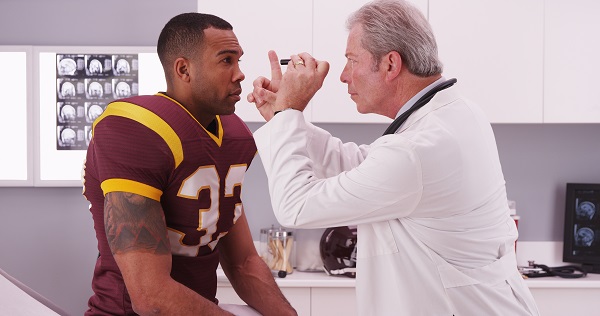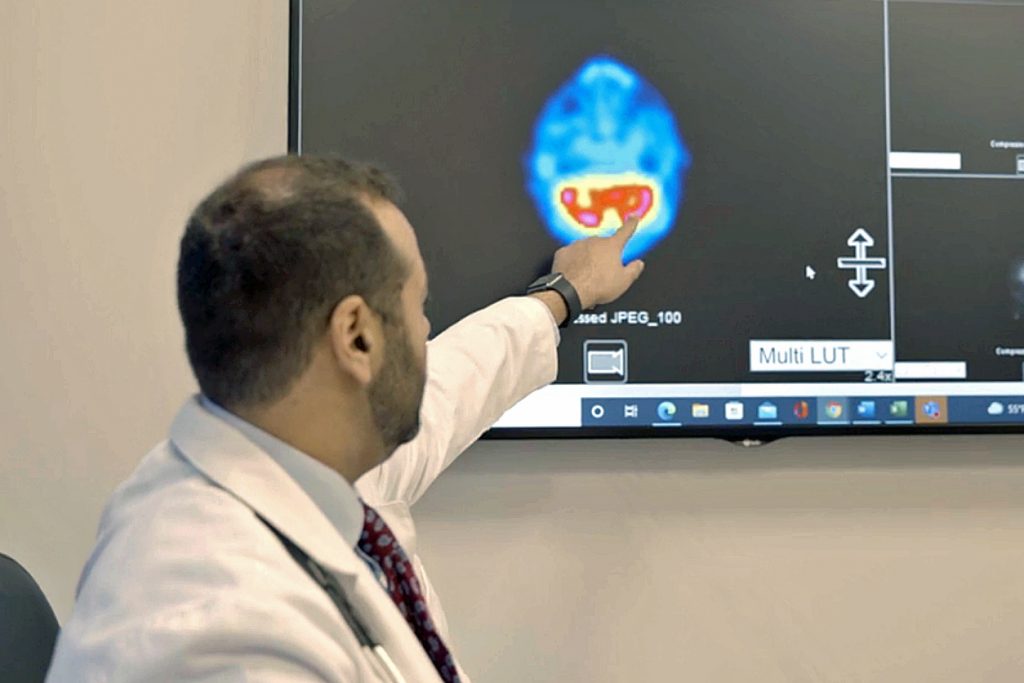Your Comprehensive Guide to Post-Concussion Syndrome (PCS) Symptoms
If you or your loved one believes they have post-concussion syndrome (PCS), rest assured, the Aviv Clinics team is here to help. We understand how debilitating living with PCS symptoms can be. We also understand how challenging it can be to find answers and solutions.
In this comprehensive guide, you’ll find essential research-backed details intended to help you better comprehend your condition and the types of treatment options available to you. If you have any questions along the way, reach out to our team.
What Is PCS?
PCS is a condition where concussion symptoms continue beyond the expected recovery period.
According to Aviv’s medical team, when concussion symptoms last longer than two weeks, doctors will typically diagnose this as PCS.
PCS can develop after a mild, moderate, or severe traumatic brain injury (TBI) from activities such as a vehicle accident, fall, sports injury, and more.
What Are the Symptoms of PCS?
The symptoms of PCS can be divided into four categories:
1. Physical
Physical PCS symptoms are the most commonly recognized signs. Individuals with PCS may experience debilitating pain and discomfort such as:
- Headaches
- Dizziness
- Nausea
- Vomiting
- Trouble balancing
- Vision problems
2. Cognitive
Cognitive issues are often the PCS symptoms that compel patients to seek medical advice. Cognitive PCS symptoms include:
- Feeling mentally foggy
- Feeling slowed down
- Having difficulty concentrating
- Having trouble remembering
- Being forgetful of recent information and conversations
- Experiencing confusion about recent events
- Answering questions slowly
3. Psychological/Emotional
Psychological and emotional symptoms can often be difficult to identify and associate with head injuries. Many people tend to overlook these emotional changes when in reality, these changes can be a manifestation of PCS. These psychological/emotional changes include:
- Irritability
- Sadness
- Nervousness
- Anxiety
- Depression
- More emotional in general
4. Sleep
Last but not least, PCS symptoms can manifest in your sleeping patterns. For example, those with PCS may:
- Feel drowsier than normal
- Sleep more than usual
- Sleep less than usual
- Have trouble falling asleep
If you are experiencing PCS symptoms, contact our team of certified medical professionals today.
PCS Symptoms: Why and How They Happen
When someone experiences a traumatic brain injury (TBI), this blow or jolt to the head makes the head and brain move back and forth rapidly causing sheer force trauma to connective blood vessels and cells in the brain. This sudden movement can:
- Disrupt blood flow to specific brain regions
- Trigger chemical changes in the brain
- Stretch and damage brain cells
- These activities put stress on your brain and inhibit it from functioning normally.
Where the damage takes place also plays a relevant role in the type of PCS symptoms that occur.
For example, when head trauma inflicts damage to the frontal lobe of your brain—the area that manages emotional expression, focus, attention, and memory—this may stimulate emotional/behavioral changes and cognitive shifts.
How Soon Can Symptoms of PCS Start?
Symptoms of PCS start to show weeks after concussion when a concussion or TBI survivor just isn’t getting better. Over time, symptoms may not go away or may exacerbate. Symptoms can also appear later on in life.
How Long Can Symptoms of PCS Last?
PCS symptoms can last anywhere from weeks to years. The sooner you address your symptoms and get help, the more likely you’ll be able to get back to your normal activities, and for some people, get back to your normal personality traits. There are risks of waiting too long to treat your post-concussion syndrome, which brings us to our next point.
What Are the Consequences of Waiting Too Long to Treat PCS Symptoms?
PCS symptoms can turn permanent if not addressed soon enough. According to Aviv’s team of certified physicians, usually, after three months, PCS turns into persistent PCS. And after a year, PCS symptoms can turn chronic. Keep in mind, it doesn’t matter where or how you receive your head injury—these factors do not necessarily impact the severity of your PCS.
As Dr. Mohammed Elimar, MD, FACP, states, “The brain does not discriminate over what is causing the injury, and it doesn’t really discriminate the injury itself.”
Thus, staying aware of your body is essential. Speak with a doctor if you feel anything out of the ordinary. As we noted earlier, when concussion symptoms last for over two weeks, that’s your cue to seek medical consultation.
What Are the Different Forms of Treatment for PCS Symptoms?
The good news is, there are various treatments available to help mitigate your PCS symptoms. Each method holds unique strengths that may target the specific symptoms you are experiencing.
Vision Therapy
Vision therapy involves a variety of techniques that train your visual system. Those who may benefit from this are people who experience eye pain, vision problems, dizziness, and headaches.
Clinical studies show patients who have post-concussion vision issues notice improvement after participating in vision therapy.
Neuro-Optometric Rehabilitation (NOR)
Neuro-optometric rehabilitation (NOR) therapy uses therapeutic prisms, lenses, and filters to stimulate parts of the brain that are not functioning properly. Those suffering from visual injuries and complications may find relief through NOR.
There is growing evidence NOR can enhance visual skills and reduce post-concussion visual symptoms.
Physical Therapy (PT)
Physical therapy (PT) is a form of care that aims to ease pain and help you move and live better. This may include massage, range of motion stretching, exercises, and heat treatments.
PT may be good for those who struggle with physical symptoms of PCS. One small study where participants averaged 6.8 PT sessions reported that their physical symptoms became more manageable after treatment.
Cognitive Behavioral Therapy (CBT)
Cognitive behavioral therapy (CBT) is a psychological treatment that addresses problems such as depression and anxiety. CBT generally strives to change thinking and behavioral patterns. Studies indicate CBT may be an effective treatment method for improving anxiety and depression in those with TBI.
Neuropsychology
Neuropsychology is a subset of psychology that focuses on how the brain and nervous system influence your thoughts and behaviors. It takes an educational approach, teaching patients about their minds and engaging in unique exercises.
Neuropsychology may be ideal for those with memory and concentration issues as well as anxiety and depression. Research notes neuropsychology may play a vital role in helping better understand the link between the area of injury in the brain and their PCS condition.
Hyperbaric Oxygen Therapy (HBOT)
Hyperbaric oxygen therapy (HBOT) is a treatment method that increases oxygen levels in the brain and body.

Here’s how HBOT works:
- Patients enter a room called a hyperbaric oxygen chamber, or suite, and receive treatment for one to two hours. In this suite, the air is pressurized 10 – 15 times higher than normal air levels.
- Patients breathe in 100% pure oxygen via a mask while in the suite.
- Patients keep the oxygen mask on for 20 minutes and then spend five minutes with the oxygen mask off.
Studies illustrate that HBOT delivered in this way encourages neuroplasticity—the ability of the brain to modify and adapt based on environmental interactions—essentially rewiring itself, which may:
- Repair chronically damaged brain functions and tissues
- Improve the overall quality of life for patients with PCS
Additional research shows HBOT can significantly improve “memory, executive functions, information processing speed, and global cognitive scores.”
For more research insights, explore the data and studies conducted by The Sagol Center.
Aviv Clinic’s Treatment for PCS Symptoms
Aviv’s Medical Program takes a holistic approach that encompasses several of the areas we discussed above. We leverage the expertise of a diverse team of medical professionals based on your health assessment.
Aviv takes a three-step approach:
- In-depth medical assessment: We start with a comprehensive health assessment with advanced brain imaging exams (perfusion MRI, fMRI, SPECT, etc.). The goal is to attain a holistic and accurate understanding of your mind and body and to map a treatment plan that will maximize the program’s results.
- Tailored treatment program: The Aviv medical team will craft a personalized treatment program based on your medical assessments. This may entail brain and physical training, HBOT sessions, and a nutritional regimen. The goal is to maximize your body’s healing process.
- Post-treatment assessment: The Aviv team will repeat the medical assessment to measure your progress and make relevant recommendations moving forward.
Benefits of our program include improved:
- Cognitive and motor functioning
- Physical performance (fitness, strength, coordination, balance)
- Immune system
- Stem cell growth (the building blocks of tissue rejuvenation)
- Neuronal blood flow
At Aviv, our multidisciplinary medical team of physicians, neuropsychologists, physiologists, physical therapists, dieticians, and more ensures you’re provided with the thorough medical treatment you deserve.
The Bottom Line
Before you pursue a treatment plan, keep three things in mind:
- Speak with a physician first about your symptoms and health history. This can help them gain a comprehensive assessment and provide a personalized treatment plan.
You can speak to an Aviv physician at the clinic or over a virtual meeting, for free. - Be patient. Finding the right combination of therapies that work for you may take some time, but don’t give up. With the right medical program, you can receive the holistic treatment you deserve and find some relief.
- TBI and concussion can affect everyone of all ages. Thus, there is no standard/solid timeline for recovery. It may take a few weeks or more to see improvement.
- Read about using HBOT to address TBI and concussion.
Feel Your Best with Aviv
There is hope. If you feel you’ve been experiencing symptoms of PCS, contact Aviv Clinics. We’ll put you in touch with our certified team of physicians who can help craft a customized plan to aid in your healing process. Focused on service, safety, and comfort, Aviv Clinics is your first stop in getting back to optimal health and back to life.
How Does Sugar Affect the Brain?
From the Paleo diet to the Mediterranean diet to the ketogenic diet and beyond, there’s one thing that nearly all modern diets agree on—if you want to maintain a healthy body and mind, cut out sugar.
While there’s wisdom in this advice, blanket statements like “cut out sugar” can leave room for confusion. It leaves many people wondering, is all sugar bad for you? Should you avoid sugar in any form, including in fruits? What about carbohydrates found in vegetables like potatoes? With so many complicated questions like these and no clear answers, it’s no wonder many people feel confused. As a center dedicated to improving brain health and performance, Aviv Clinics understands the importance of proper nutrition and its direct effect on cognitive and physical functioning.
Let’s examine sugar in detail and clarify what dietitians really mean when they tell you to cut out sugar.
Is Sugar Really the Enemy?
Not exactly—foods with high amounts of sugar can still be healthy! For example:
- Apples contain lots of sugar but water, vitamins, nutrients, and dietary fibers that are vital for a healthy body. Dietary fiber is essential for maintaining a thriving wealth of gut flora. Gut flora builds our immune system and fights off ailments like leaky gut disease.
- You can find natural sugars in many whole foods. They also come in many different chemical forms, including glucose from carbohydrates. Glucose provides our bodies with energy, helping fuel our muscles and vital organs as it circulates throughout the bloodstream. We wouldn’t be able to function normally without the glucose from carbohydrates.
Does Your Brain Need Sugar?
Although the brain can use alternative fuel sources for fuel if you’re insulin resistant, such as ketones, glucose is the brain’s preferred fuel source. The brain relies heavily on glucose when performing complex tasks requiring much thought.
So when you’re concentrating extra hard on a crossword puzzle or a complicated passage in your favorite book, your brain is burning glucose over time to help you get the job done. If your blood sugar dips too low, you can experience problems like brain fog or trouble concentrating. It’s your brain’s way of telling you that it needs more fuel and that you should grab a healthy snack.

What Is the Difference between Natural Sugar and Refined Sugar?
While natural sugar naturally occurs in foods, refined sugar is processed to extract the sugar.
Natural Sugar Process
When you eat an apple, your body does all the work of processing the unrefined fruit into digestible nutrients all on its own.
First, you must chew the apple, breaking it down into apple sauce. Then, your gut does the hard work of absorbing the vital nutrients and breaking down the sugar to send circulating throughout your bloodstream.
The leftover fiber is used to nourish your gut’s network of microflora. When you eat whole foods, your body is the factory, and the natural sugars in your foods are the fuel that runs it.
Refined Sugar Process
Foods with refined sugar are a different story. Candies, cookies, chips, and other pre-packaged snacks don’t offer your body the same fuel as whole foods. Your body doesn’t have to go through the work of breaking down these highly processed foods—the factory already did it for you.
Processed foods are loaded with refined sugar without any of the nutrients, vitamins, and fibers your body needs. This leaves your gut flora starved of the materials required to function and your immune system vulnerable.
Is Sugar Bad for Your Brain?
It’s possible to have too much of a good thing. Modern western diets are filled with refined sugar and carbohydrates in the form of ready-made snacks, treats, and processed foods.
Thus, you may feel sluggish once the “sugar high” wears off. Eating too much sugar can also make you susceptible to health conditions like type 2 diabetes.
The best way to limit refined sugar intake is to lean on a natural diet consisting of whole foods.
What Does Sugar Do to Your Brain?
Excessive sugar intake can impact specific neurotransmitters and bring on memory deficiencies. Among these neurotransmitters is dopamine—the chemical controlling mood, behavior, learning, and memory.
Here’s what research studies further illustrate:
- When rats were fed a high-sugar diet that resembles the average western diet, their cognitive performance suffered. The rats struggled to complete tasks that relied on their memory. Their struggles suggest their diets were directly responsible for impairing their brain’s prefrontal lobe and hippocampus regions.
- Eating a diet high in sugar can reduce the production of a chemical called “brain-derived neurotrophic factor” (BDNF). This chemical is active in areas of the brain vital to learning, memory, and higher thinking. Low BDNF levels are associated with poor memory function and are linked with Alzheimer’s Disease and dementia.
- Experiments in animals and people have revealed that when the brain needs an extra power boost, blood vessels in the brain dilate to deliver more glucose and oxygen through the bloodstream.
Is Sugar Important to the Body?
Yes, natural sugars in the foods you eat perform a vital role in energizing the body and mind. The body requires a total of 200 grams of sugar or glucose each day. Two-thirds of this, or 130 grams, is used by the brain to help you function to your best ability.
The key takeaway from the information we presented above is this—incorporating a diet filled with natural, whole foods is essential to:
- Nourishing your body with the right type of sugar
- Enhancing cognitive and physical performance
4 Tips for Healthy Eating
The natural sugars found in whole foods are nothing to fear. Eating a diet with enough carbohydrates and natural sugars is vital for keeping your body and brain healthy.
Here are a few ways to stay on track:
- Make sure the bulk of the sugar you consume comes from whole foods like fruits and vegetables, not processed junk foods.
- Just because a food is labeled “sugar-free,” that’s not always the case. It may be true that a food doesn’t contain added sugar, but remember that carbohydrates turn to glucose in your body.
- You can rack up carbohydrates quickly on a typical day. Try to aim for around 45 total carbs at every meal if you’re a woman or 60 every meal if you’re a man. You’ll be surprised how quickly you can meet that quota with just a handful of whole foods!
- You don’t have to cut out refined sugar altogether. Obsessing over eating a “perfect” diet only stresses you out and doesn’t leave any room for you to feed your soul. Do you plan on spending a relaxing afternoon baking with your grandkids? Go ahead and treat yourself to a warm cookie fresh from the oven.
If you’re eating healthy at most meals, there’s no need to feel guilty about indulging in rich foods now and then. Just be smart about it, and always make conscious decisions about what kind of foods you put into your body.
Aviv Clinics delivers a highly effective, science-based treatment protocol to enhance brain performance and improve the cognitive and physical symptoms of conditions such as traumatic brain injuries, fibromyalgia, Lyme, and dementia. The Aviv Medical Program’s intensive treatment protocol uses Hyperbaric Oxygen Therapy and includes nutrition management and dietitian support to optimize your diet for better brain health. Based on over a decade of research and development, the Aviv Medical Program is holistic and customized to your needs.
Contact us to learn more.


